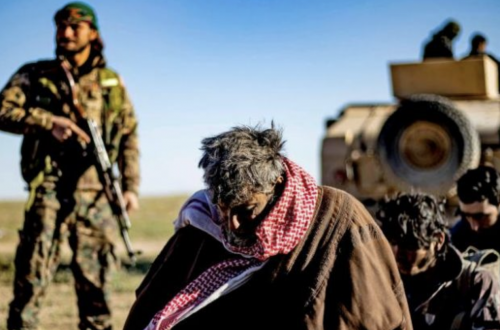Professor Peter Neumann’s new book Radicalised: New Jihadists and the Threat to the West, has been described as ‘The book everyone needs to read’ by Hassan Hassan, author of ISIS: Inside the Army of Terror. Professor of Security Studies at the Department of War Studies at Kings College London, Neumann is also the Director of the International Centre for the Study of Radicalisation (ICSR), which he founded at Kings in 2008. He spoke to a Fathom Forum in London on 23 November 2016 about the threat to Europe from returning Jihadis.
It might be easiest to start by saying what the book is not. It is not a book about an organisation. There are a lot of very good books about ISIS. My book does talk about ISIS a lot, but I believe that we are dealing with a movement. The mistakes that we in the West made in 2011, when the leadership of Al-Qaeda had been eliminated, was to mistake a movement for an organisation, and to believe that with the killing of Osama Bin Laden and the elimination of Al-Qaeda’s leadership, the threat of jihadism had ceased to exist. Of course, it returned ferociously only two years later with ISIS. It is possible that ISIS – like Al-Qaeda – will disappear. But that would not mean that the jihadist movement has gone away. I am convinced that in five years, we will still be talking about a jihadist movement, whether or not we are still talking about ISIS.
And nor is book this principally about the Middle East. There are a lot of very good books that examine the origins of ISIS in Iraq and its historical evolution. But what I wanted to focus on was the situation in Europe and the threat against the West. So this book talks about the implications of the rise of ISIS and of the jihadist movement to the West. It talks about ideas and people.
The principal thesis of the book is that this is a threat that will keep us preoccupied for a generation.
What we have seen over the past four to five years is an unprecedented mobilisation of people in the name of that movement. Since 2011, the chaos and instability that to some extent has resulted from the negative consequences of the Arab Spring – the rise of Islamic State, the competition between Al-Qaeda and ISIS which we are seeing in different parts of the world – led to a mobilisation that is even greater than the mobilisation that took place in the 1980s in Afghanistan. READ MORE.



